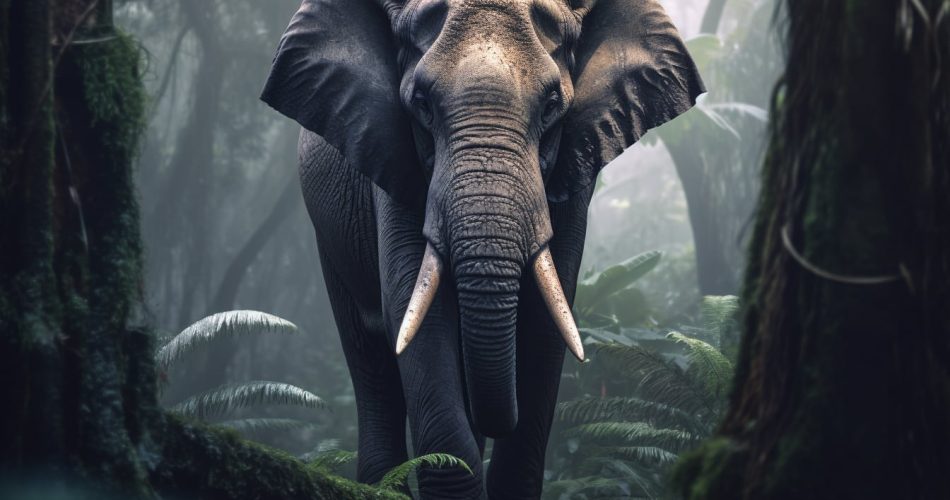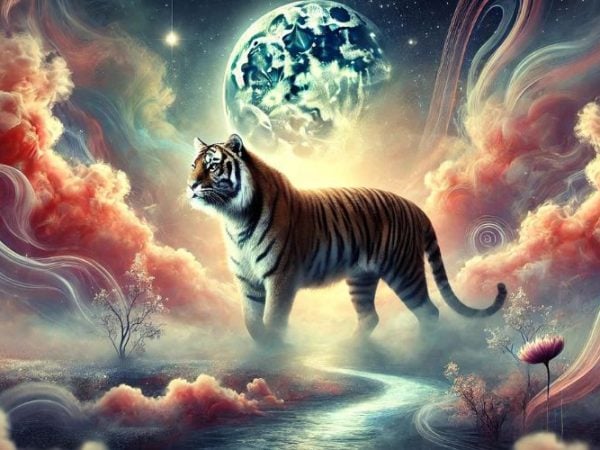Briefly
The elephant, one of the largest land animals, symbolizes strength, power, and steadfastness due to its indomitable physical presence. Its notable long lifespan associates it with wisdom, memory, and longevity. The elephant’s sociable and cooperative nature makes it a symbol of community, familial bonds, and loyalty. In many cultures, it is also seen as a harbinger of good luck, prosperity, and the remover of obstacles.
Elephant in Dreams
In the realm of dreams, elephants often denote personal growth and self-understanding. They can be representative of one’s power and influence over their own life, symbolizing the capability to navigate challenges with wisdom and resilience. Their presence might suggest the need for patience, understanding, and thoughtful action. The nurturing behavior of elephants can signify the dreamer’s relationships and emotional bonds, or their role within a community.
Elephant in Myths and Folklore
Elephants feature prominently in various mythologies, folklore, and religious traditions. In Hinduism, the deity Ganesha, with an elephant head, is revered as the god of beginnings, wisdom, and the remover of obstacles. In Buddhism, a white elephant is associated with the birth of Buddha, symbolizing purity and divine blessing. Many African tribal cultures honor the elephant as a symbol of social structure and leadership. In western fairy tales and fables, elephants often portray characteristics of wisdom, resourcefulness, and enduring patience.

Read also Bear Symbolism & Meaning

Reviewed by Alexander Lys, M.L., a specialist in the field of symbolism research and dream psychology. A certified participant in numerous psychological seminars and courses, the author of hundreds of articles on psychology, including studies on symbolism in dreams and myths from a scientific perspective.



